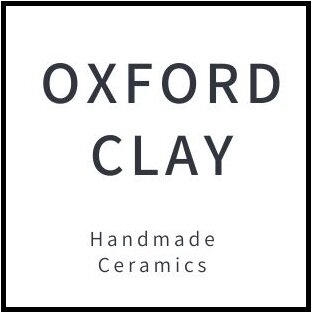Pottery and Climate Change
10 ways potters can have a positive impact.
Recently I read ‘A bigger picture: my fight to bring a new African voice to the climate crisis’ by Vanessa Nakate. In chapter 10 Nakate describes 10 ways individuals can positively impact the climate crisis by “standing up for what is right and just”. Nakate believes that change starts within people and that the efforts of individuals are essential.
It made me think of how these 10 ways could specifically apply to Potters.
1. Find your passion
Nakate explains how important it is to connect with the things you love, animals, plants anything that connects you to your ’why’ (2) and contributes to the continuation of life on Earth (1). For me, it is my direct connection to the earth through clay that makes me want to protect it.
2. Find your people
By using your voice and sharing what you know, your people will find you. Six months into starting Oxford Clay I was contacted by Sarah Jane from Kayu Ceramics we had similar ideas about making our pottery more eco-conscious. I realised that by sharing ideas, others would be able to find me, and we could support each other along our pottery journeys.
3. Share and connect
Sharing what you know and connecting with others creates a common good. As Nakate states “directly or indirectly you can be a positive influence on others whether they’re close to you or far away, you never know who you may be reaching so share your dreams, emotions and what you’ve learned, it doesn’t matter how big or small your audience”. Sarah Jane and I had a similar approach to pottery and I was so grateful to connect and exchange knowledge, experience and ideas.
4. Speak out
It can be difficult to speak out, especially if you are saying something against the status quo. Nakate explains however that everybody has a right to be heard and a lot to offer. As Dr Tererai Trent states in the book ‘The Awakened Woman: Remembering & Reigniting Our Sacred Dreams’ the world “needs our stories for healing and creating” (3).
5. Listen too
Nakate explains the importance of listening to those from communities on the front line of climate change. A pottery example of this could be understanding the ways in which cobalt mining affects communities in the Democratic Republic of Congo.
6. Be creative and take care of yourself
Being creative as a potter may not necessarily be a problem! but taking care of yourself mentally and physically is ongoing for everyone. Personally, I need to practice self-care and rest in order to be able to continually work on my ideas and pottery.
7. Be the change you want to see in the world
Nakate explains we can ‘be the change’ with our thoughts, beliefs, actions and how we spend our money. As a potter trying to make my practice more eco-conscious, I switched my electricity tariff to one from renewable energy sources. I implemented other simple ways to make my pottery more eco-friendly.
8. Think globally and intersectionally
Nakate explains that climate activists need to see beyond borders. This is especially the case in pottery because many pottery materials are internationally mined and traded. Before I understood this, I routinely used pottery materials that had a negative impact on others, globally.
9. Educate yourself
In this section Nakate quotes Hilda Nakabuye, “read, research and understand climate change, never stop reading”. For the last two years, I’ve been researching pottery materials and their impact on the environment. The main issue I came up against was not knowing exactly where to find the information I needed. I read many journal articles, books, websites and databases. I did many practical experiments and tests with clays, glazes and pottery-making processes. Only after collecting this knowledge together, was I able to build an environmentally conscious pottery practice.
It was due to the difficulties I had finding information on pottery materials that decided to write down everything I’d found out and created resources for Potters.
10. Believe
Finally, Nakate says “believe in yourself and your vision”. A very inspiring final step.
Further reading
If you’d like more ideas on making a pottery practice more eco-conscious Oxford Clay have produced two books sharing everything we know:
References
Nakate, V., 2021. A Bigger Picture: My Fight to Bring a New African Voice to the Climate Crisis, Basingstoke: Pan Macmillan
Sinek, S. et al. 2017. Find your why: a practical guide to discovering purpose for you or your team, UK: Portfolio Penguin.
Trent, T 2017. The Awakened Woman: Remembering & Reigniting Our Sacred Dreams, London: Simon & Schuster

